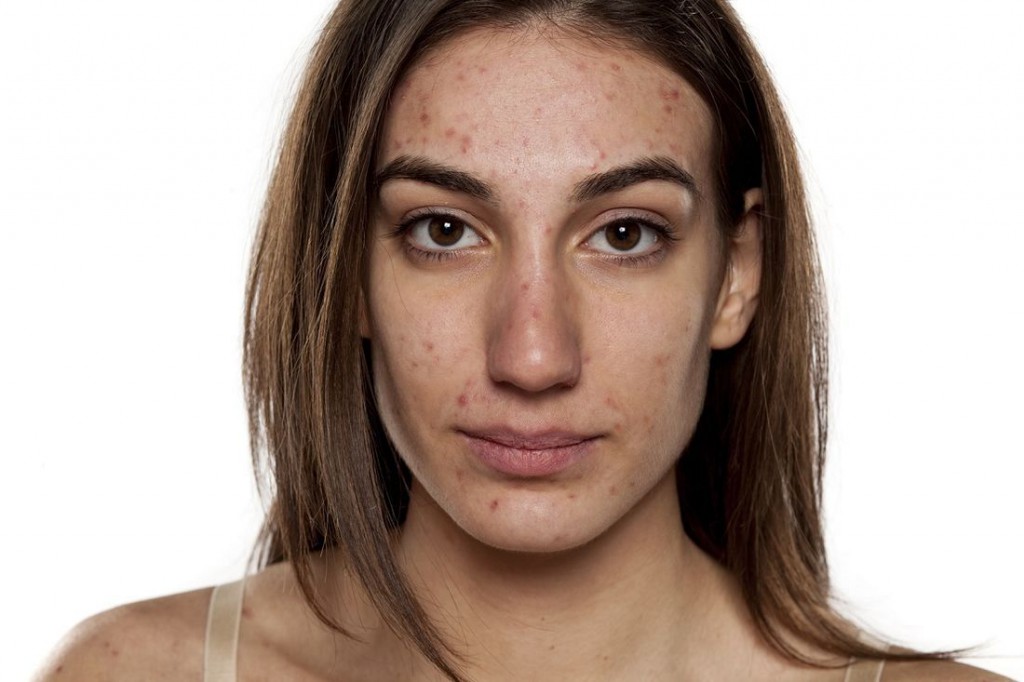 Blemishes and blackheads will not disappear itself. They cannot be ignored or treated on your own. Why? Because homemade remedies for acne, such as face cleansing, home-made steam saunas, and highly-drying gels, are not only ineffective but also dangerous to the skin. Fortunately, we have tried and effective methods to alleviate the symptoms of acne and even get rid of it once and for all. Learn about effective acne treatments and find out about the effects of care, diet and beauty treatments.
Blemishes and blackheads will not disappear itself. They cannot be ignored or treated on your own. Why? Because homemade remedies for acne, such as face cleansing, home-made steam saunas, and highly-drying gels, are not only ineffective but also dangerous to the skin. Fortunately, we have tried and effective methods to alleviate the symptoms of acne and even get rid of it once and for all. Learn about effective acne treatments and find out about the effects of care, diet and beauty treatments.
Acne remedies: proper care
Toner and moisturizing cream
After washing the face with a gel, wipe it with a toner that will tighten the pores and refresh the skin. It cannot contain alcohol because it would irritate the skin and stimulate the sebaceous glands to become even more active. In the case of dry skin, for example, due to the use of too strong cleansing gel or taking medication, use a gentle moisturizing cream. Because some ingredients in the creams can clog the pores, try a few creams and observe the reaction of the skin.
Exfoliating scrub
In order to get rid of dead skin cells that block the sebaceous glands, go for enzyme peels. They are safe even for acne-prone skin because they dissolve dead cells thanks to fruit or herbal enzymes. Mechanical peels with abrasive particles are inadvisable, because they can lead to worsening of acne symptoms.
In addition, it is worth reaching for creams with the content of fruit acids (alpha- and beta-hydroxy acids), which should be used daily for the night; this will result in brightening and smoothing of the skin as well as reduction of discoloration and seborrhea.
The doctor may recommend a mid-deep dermatological peel, which uses fruit acids (AHA – glycolic, BHA – salicylic, lactic and almond). Such a peel is based on massaging the face with the acidic solution in the form of a gel or a cream and leaving it on for a few minutes. The treatment limits skin oiliness and smoothes it out, narrows the pores, reduces redness and scarring.
A blemish stick
If the skin shows redness that heralds a pimple, apply a blemish stick. This cosmetic accelerates the healing thanks to the content of salicylic acid, tea tree oil and soothing substances such as hamamelis or thermal water.
Sunscreen
Sun tanning worsens the condition of the skin and can have a negative impact on human health, because it not only accelerates aging but also promotes skin cancer. In the case of acne-prone skin, there is still the risk of drying the skin, which quickly begins to defend and consequently secrete even more sebum. For this reason, you should apply light preparations with a minimum of SPF 30 every day, throughout the year, especially when you use cosmetics with fruit acids. Otherwise, you can experience post-sun spots on the skin.
Acne remedies: healthy diet
Proper nutrition has a beneficial effect on the complexion. You need to consume products rich in vitamin A, B2, B6 and PP. Vitamin A regulates skin exfoliation and can be found in fish, liver, eggs, butter, carrots, spinach, tomatoes and apricots. Vitamins B2, B6 and PP reduce seborrhea and occur, for example, in fish, beans, whole-grain bread, almonds, yeast, soy and bananas.
In addition, your diet plan should be supplemented with zinc, which relieves inflammation and accelerates the treatment of acne. It is especially found in seafood, cereal grains, pumpkin seeds and eggs. On the other hand, acne may be increased by coffee, alcohol, excess of vitamins B12 and D as well as taking medicines containing iodine and bromine.
Acne remedies: beauty treatments
Instead of popping pimples on your own, go to the beautician. Go for a cavitation treatment, which consists in removing impurities using a device emitting ultrasounds and as a result, it does not irritate the skin instead of a mechanical cleansing.
Acne remedies: laser
Acne can be combated by various methods depending on the type of skin lesions. Active breakouts, such as pimples, blackheads, and cysts, are to be treated locally or generally with the use of anti-seborrheic, anti-inflammatory, and exfoliating preparations, while scars and post-acne discolorations will be best removed through exfoliating preparations, peels or laser.
Acne remedies: acid scrub
Acne-prone skin needs to be intensively moisturized twice a day and cared for with seborrhoea-reducing preparations, preferably at night. Creams responsible for regulating the work of sebaceous glands include retinol, glycolic acid, and salicylic acid. In the case of scars, professional treatments offered by aesthetic medicine are most recommended, such as glycol peeling or with retinoids.
Acne remedies: dermatological consultation
Often times, at-home skin care may be insufficient. A dermatologist will determine the type and origin of acne, and thus – will order endocrinology consultation, pharmacological treatment or a therapy. Depending on the severity of the disease, different medicines are used. They can be based on:
– retinoids, azelaic acid or benzoyl peroxide, which unclog pores, reduce seborrhea and regulate skin keratosis (applied topically),
– antibiotics (used orally and topically).
In more severe forms of acne, a dermatologist can prescribe isotretinoin. The drug permanently reduces the sebaceous glands and thus oily skin. Luckily, relapses are rare. Isotretinoin should be taken under strict dermatologist control, as it may cause serious side effects.






Leave a Reply